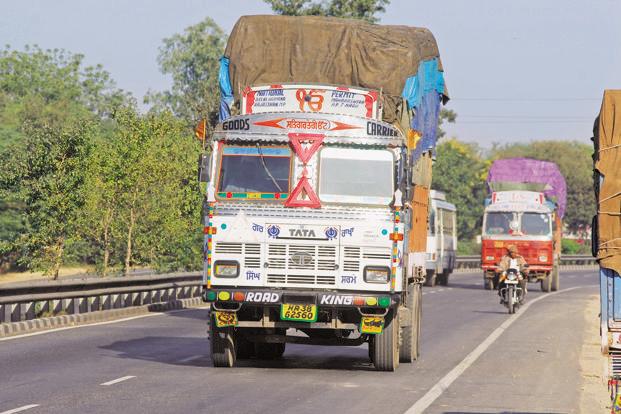GST: Industry sees no relief on compliance
Live mint
By Remya Nair
Wed, Mar 15 2017. 12 07 AM IST
Permitting officials to check vehicles in transit among provisions included at insistence of states despite opposition from industry

GST aims to remove barriers and ensure seamless movement of goods and services across the across states, thereby improving ease of doing business. Photo: Ramesh Pathania/Mint
New Delhi: With the central government keeping many regressive provisions in the final draft of the goods and services (GST) law to get reluctant states on board, the ambitious tax reform may not ease the compliance burden or improve the ease of doing business as significantly as earlier thought.
Revision of GST orders for three years, permitting officials to check vehicles in transit, levy of up to 2% tax collected at source on e-commerce marketplaces and the requirement of service providers to register in every state are some of the provisions in the draft law included at the insistence of states despite severe opposition from industry, said two officials familiar with the draft.
GST aims to remove barriers and ensure seamless movement of goods and services across the across states, thereby improving the ease of doing business.
But there are many provisions in the draft GST law approved by the GST council, which industry fears will increase the compliance burden and bring in inspector raj.
The GST law retains provisions present in the value added tax (VAT) laws wherein the taxmen can revise orders for three years. These powers will mean cases drag on for a long time.
It also retains provisions that will allow tax authorities to check vehicles in transit, a move that brings back fears of inspector raj. Though transporters will now be issued one single e-permit electronically by the goods and services tax network, the clause that such permits can be checked at the toll posts has industry worried.
It also retains the provision that requires an e-commerce company to collect up to 2% tax (1% Central GST+1% State GST or 2% integrated GST) on the total payment made to a supplier for the goods supplied, and deposit it with the government on behalf of the supplier. This has been opposed by the e-commerce companies who have argued that this will increase compliance costs.
Service providers will also have to register in every state they operate, thereby requiring them to file multiple returns every year.
Rajeev Dimri, indirect tax leader at BMR & Associates LLP, said these provisions will increase compliance burden. He also flagged some of the excessive penalty and prosecution powers in the law. “There is no distinction between a dispute and outright evasion in the law,” he said.
States, however, justified the provisions, pointing out that the present clauses are still a major improvement from the existing compliance and inspection regime that the businesses have to face.
“Earlier, the taxpayer had to get a permit for every state through which the goods passed. Now, there will be just one permit required which will be generated electronically,” said a state government official who did not want to be identified.
The four laws—the central GST law, the integrated GST law, the Union territory GST law and the bill to compensate states for losses arising from revenue losses in GST—will be tabled in Parliament in the ongoing budget session after the cabinet’s nod. The GST council, which has cleared three of the five supporting legislations, is expected to give its nod to the remaining two legislation in its next meeting on 16 March.